
CJ Girard: Passionate father, fierce firefighter, genuine friend
CJ Girard packed school lunches during the week and made fresh pancakes on Sundays. He played floor hockey with his kids in the basement, always pleading for one more game. On a rainy day, he’d sit by the woodstove and plug away at a puzzle.

‘Are you listening?’ – NH residents urge lawmakers to fund public schools, childcare and disability services
State lawmakers heard an earful from constituents, advocates and local officials denouncing the state’s current school funding formula and Education Freedom Accounts this week.
Most Read
 Merrimack Valley school board clashes with superintendent over process for budget cuts
Merrimack Valley school board clashes with superintendent over process for budget cuts
 Concord Shaw’s supermarket in Fort Eddy Plaza to close
Concord Shaw’s supermarket in Fort Eddy Plaza to close
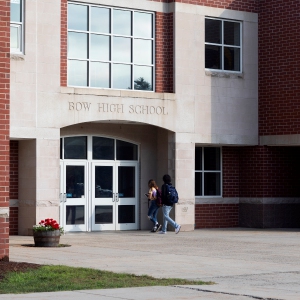 NH Senate passes parental bill of rights giving families more power to get answers about school records and programs
NH Senate passes parental bill of rights giving families more power to get answers about school records and programs
 Town Meeting election results for Merrimack County communities
Town Meeting election results for Merrimack County communities
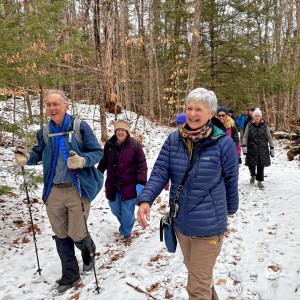 ‘It’s wonderful fun’: An exploration of winter and spring hiking in Concord
‘It’s wonderful fun’: An exploration of winter and spring hiking in Concord
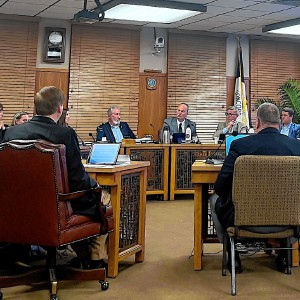 ‘That wasn’t the charge we were given’ – New city councilors question golf clubhouse options
‘That wasn’t the charge we were given’ – New city councilors question golf clubhouse options
Editors Picks
 More New Hampshire law enforcement departments partner with federal immigration agencies
More New Hampshire law enforcement departments partner with federal immigration agencies
 ‘That wasn’t the charge we were given’ – New city councilors question golf clubhouse options
‘That wasn’t the charge we were given’ – New city councilors question golf clubhouse options
 ‘The best firefighter he could be’ – Christopher ‘CJ’ Girard, 39, remembered for commitment to community and family
‘The best firefighter he could be’ – Christopher ‘CJ’ Girard, 39, remembered for commitment to community and family
Sports

Girls’ hockey: Concord loses to perennial powerhouse Hanover in semifinals
The Concord girls’ hockey team returned to the final four for the first time since 2020 when they beat Hanover, for the first time in program history, in the semifinal. This time around, in their home arena, the Tide faced a very tough Hanover team (15-4) that started hot and finished strong to win, 11-2, on Tuesday night.
Opinion

Opinion: The special education gimmick in NH school voucher rules
Gerald M. Zelin, a resident of Portsmouth, N.H., has practiced education law for nearly 50 years. He is a shareholder with the law firm of Drummond Woodsum, which represents many school districts in both New Hampshire and Maine. The opinions expressed in this piece are not necessarily Drummond Woodsum’s.
 Opinion: What Trump really means by government efficiency
Opinion: What Trump really means by government efficiency
 Opinion: To salvage democracy, rebuild the Democratic Party
Opinion: To salvage democracy, rebuild the Democratic Party
 Opinion: Fully support Alcohol Fund to curb epidemic of alcohol use disorder deaths
Opinion: Fully support Alcohol Fund to curb epidemic of alcohol use disorder deaths
 Opinion: Army brat
Opinion: Army brat

Your Daily Puzzles

An approachable redesign to a classic. Explore our "hints."

A quick daily flip. Finally, someone cracked the code on digital jigsaw puzzles.

Chess but with chaos: Every day is a unique, wacky board.

Word search but as a strategy game. Clearing the board feels really good.

Align the letters in just the right way to spell a word. And then more words.
Politics

On the Trail: Shaheen’s retirement sparks a competitive NH Senate race
Democratic Sen. Jeanne Shaheen’s announcement that she won’t seek re-election next year marks the beginning of the end of a long and successful career of the first woman in American politics to win office both as a governor and as a U.S. senator.
 ‘If it affects one, it’s going to affect all’: Dozens protest federal firings in Concord
‘If it affects one, it’s going to affect all’: Dozens protest federal firings in Concord
 On the Trail: Window closing on Shaheen decision to run in 2026
On the Trail: Window closing on Shaheen decision to run in 2026
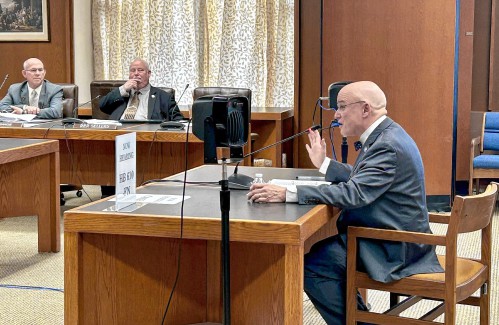 Bill to remove NH’s consumer advocate met with concerns, opposition
Bill to remove NH’s consumer advocate met with concerns, opposition
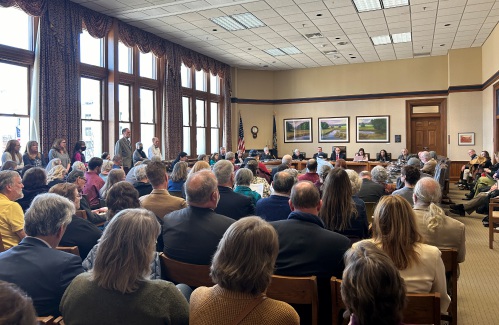 New Hampshire House Committee votes to advance end-of-life options bill
New Hampshire House Committee votes to advance end-of-life options bill
Arts & Life

Franklin Opera House presents annual murder mystery dessert show on Pi Day
Franklin Opera House, in cooperation with Franklin Footlight Theatre Co., is proud to present its annual murder mystery dessert show, “Murder at the Pie Auction.” Now in its 11th year, this collaboration between Franklin Opera House and Franklin Footlight Theatre Co. is loads of laughs and tons of fun. Characters and camaraderie join forces to benefit Franklin Opera House.
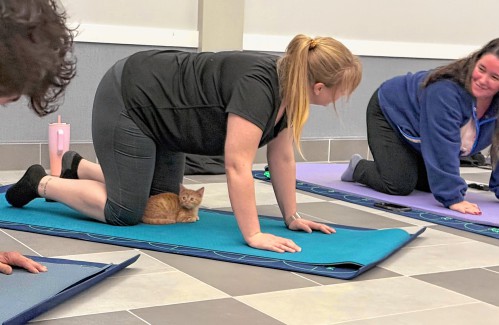 Yoga with shelter pets offers fun connections with four-legged friends
Yoga with shelter pets offers fun connections with four-legged friends
Obituaries
 Joann Marie Watson
Joann Marie Watson
Hill, NH - Joann Marie Watson (Meade), 92, of Hill, New Hampshire, passed away peacefully on March 8, 2025. Born June 5, 1932, in Detroit, Michigan to Ivan D. and Eleanor Meade, Joann lived a life filled with family, faith, and service.... remainder of obit for Joann Marie Watson
 Terje Reinertsen
Terje Reinertsen
Contoocook, NH - Terje Reinertsen, born in the coastal town of Farsund, Norway, on April 1, 1937, passed away peacefully on March 3rd, at home, with his wife Priscilla at his side, in Contoocook, NH. Terje studied psychology at the Uni... remainder of obit for Terje Reinertsen
 Arthur Stavros
Arthur Stavros
Canterbury, NH - Arthur George Stavros, a beloved husband, father, grandfather, and uncle, passed away after having celebrated his 99th birthday the day before. He was born to George Stavros and Caliope (Siatravani) Stavros, immigra... remainder of obit for Arthur Stavros
 Betsy Gammons
Betsy Gammons
Melrose, MA - Betsy Parker Gammons of Concord, NH passed away peacefully, from Alzheimer's, on Tuesday March 4, 2025. A ray of sunshine, love, and endless laughter, Betsy brought life and color to everything she touched. A vibrant and c... remainder of obit for Betsy Gammons


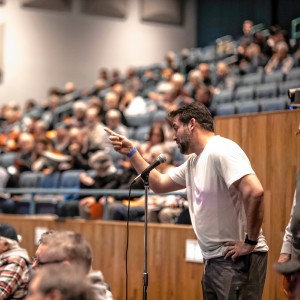 Bow joins other towns in expanding conservation opportunities with new financial support option
Bow joins other towns in expanding conservation opportunities with new financial support option
 Boys’ hockey: Concord dominates D-I semifinal, defeats the Hanover, 3-1
Boys’ hockey: Concord dominates D-I semifinal, defeats the Hanover, 3-1
 Boys’ hockey: Belmont-Gilford upsets Berlin-Gorham to reach 3rd final in 4 years
Boys’ hockey: Belmont-Gilford upsets Berlin-Gorham to reach 3rd final in 4 years
 Weare voters nix school and town budgets, reject John Stark teacher contract
Weare voters nix school and town budgets, reject John Stark teacher contract
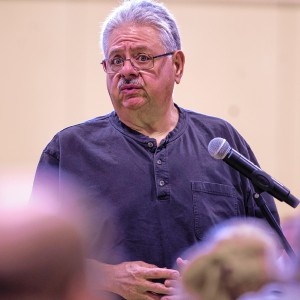 Allenstown chooses default town budget, elects new select and school board members
Allenstown chooses default town budget, elects new select and school board members

 Girls’ hockey: Brinity-Bow falls in semifinals to top-seeded Oyster River-Portsmouth
Girls’ hockey: Brinity-Bow falls in semifinals to top-seeded Oyster River-Portsmouth Boys’ basketball: Pembroke takes down 2-time defending champs Pelham in D-II semifinal
Boys’ basketball: Pembroke takes down 2-time defending champs Pelham in D-II semifinal Girls’ basketball: Undefeated Bedford ends Concord Christian’s bid for 4th straight title in D-I semis
Girls’ basketball: Undefeated Bedford ends Concord Christian’s bid for 4th straight title in D-I semis High schools: Hockey and D-II basketball quarterfinal results from this weekend
High schools: Hockey and D-II basketball quarterfinal results from this weekend Alton Brown, culinary wiz and TV personality, coming to Concord on farewell tour
Alton Brown, culinary wiz and TV personality, coming to Concord on farewell tour The Concord Public Library announces Concord Reads 2025 selection
The Concord Public Library announces Concord Reads 2025 selection ‘Cozy and Chaos’: Inside the art scene at Brothers’ Cortado and its newest installation, ‘We Are Always Saying Goodbye’
‘Cozy and Chaos’: Inside the art scene at Brothers’ Cortado and its newest installation, ‘We Are Always Saying Goodbye’
